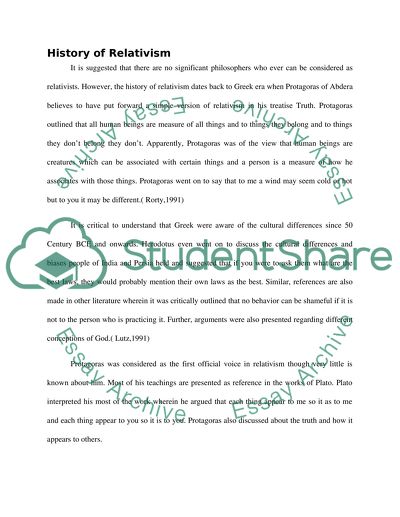Cite this document
(“What is Relativism History of Relativism Essay Example | Topics and Well Written Essays - 3250 words”, n.d.)
Retrieved from https://studentshare.org/history/1399090-what-is-relativism-is-relativism-defensible
Retrieved from https://studentshare.org/history/1399090-what-is-relativism-is-relativism-defensible
(What Is Relativism History of Relativism Essay Example | Topics and Well Written Essays - 3250 Words)
https://studentshare.org/history/1399090-what-is-relativism-is-relativism-defensible.
https://studentshare.org/history/1399090-what-is-relativism-is-relativism-defensible.
“What Is Relativism History of Relativism Essay Example | Topics and Well Written Essays - 3250 Words”, n.d. https://studentshare.org/history/1399090-what-is-relativism-is-relativism-defensible.


